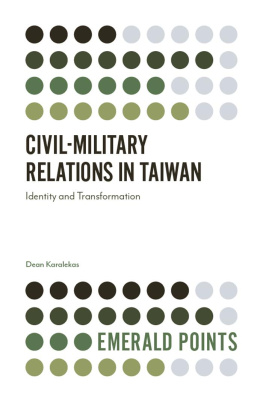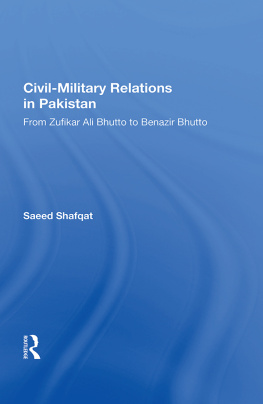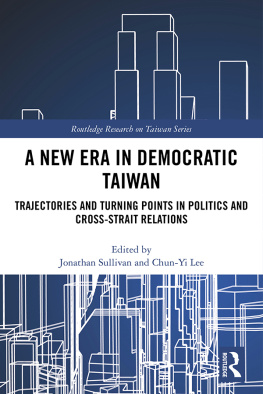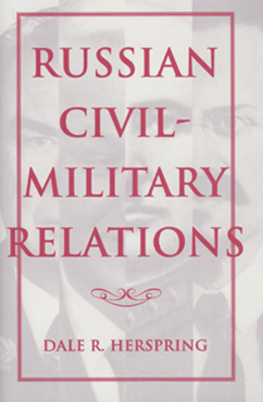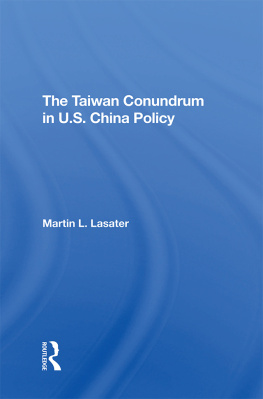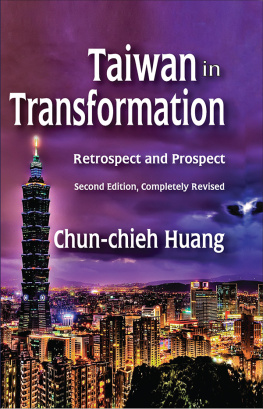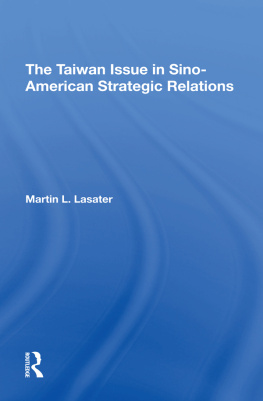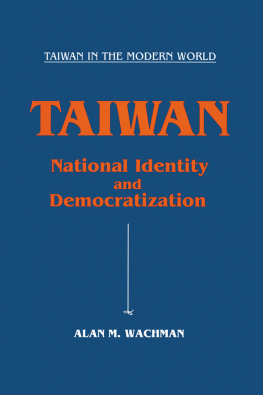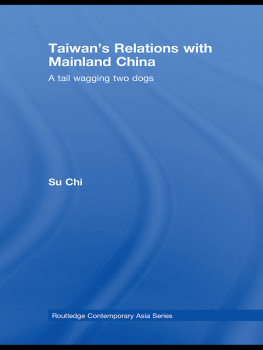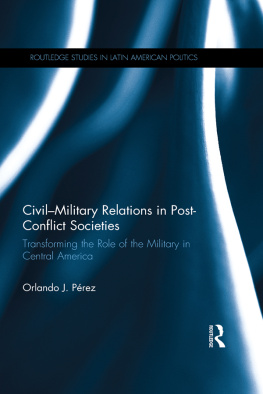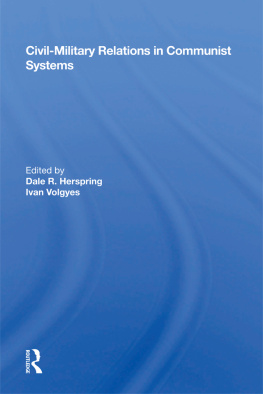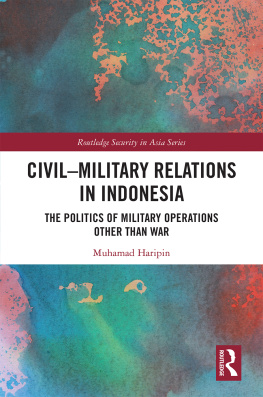Emerald Publishing Limited
Howard House, Wagon Lane, Bingley BD16 1WA, UK
First edition 2018
Copyright 2018 Dean Karalekas
Reprints and permissions service
Contact:
No part of this book may be reproduced, stored in a retrieval system, transmitted in any form or by any means electronic, mechanical, photocopying, recording or otherwise without either the prior written permission of the publisher or a licence permitting restricted copying issued in the UK by The Copyright Licensing Agency and in the USA by The Copyright Clearance Center. Any opinions expressed in the chapters are those of the authors. Whilst Emerald makes every effort to ensure the quality and accuracy of its content, Emerald makes no representation implied or otherwise, as to the chapters suitability and application and disclaims any warranties, express or implied, to their use.
British Library Cataloguing in Publication Data
A catalogue record for this book is available from the British Library
ISBN: 978-1-78756-482-4 (Print)
ISBN: 978-1-78756-479-4 (Online)
ISBN: 978-1-78756-481-7 (Epub)
INTRODUCTION: THE ARMED FORCES OF THE REPUBLIC OF CHINA (ROC)
ABSTRACT
This offers an introduction to the ROC army with a focus on its influential role in post-revolution society, the retreat to Taiwan, and its transformation over the decades. Originally called the National Revolutionary Army at its inception in 1925 in China, it was renamed the Republic of China Armed Forces in 1947. Since 1949, the forces primary goal was the ROC governments objective of retaking the mainland (China) from the Communists. As a result of its history, the military has long been regarded by most Hokkien-speaking Taiwanese (those whose ancestors moved to the island from the 17th century, as opposed to the so-called Mainlanders who arrived from mainland China in following the 1949 KMT defeat at the hands of the Communists) as being the KMT army. The extent to which this perception persists is very much of interest when determining the civilmilitary relationship in Taiwan. Thus, conditions exist for low popular regard for the military, especially as regards a military career. There exists a situation in which Taiwan society has moved forward, both economically as well as politically, from dictatorship, through democratization, and into a truly open and free society dedicated to fairness and equality, and yet the security situation remains unchanged, with the threat of invasion remaining ever-present. As a result, the military tasked with confronting this threat has remained one of the largest social organs on the island resistant to change.
Keywords: ROC military; democratization; Chinese Civil War; Kuomintang; Chinese nationalists; Civil; Military relationship
The Armed Forces of the Republic of China (ROC) refers to the countrys Army, Air Force, Navy, Marine Corps, and Military Police Force. Originally called the National Revolutionary Army at its inception in 1925 in China, it was renamed the Republic of China Armed Forces with the 1947 promulgation of the ROC Constitution. Since 1949, the forces primary goal was the ROC governments objective of retaking the mainland (China) from the Communists. Known as Project National Glory, this imperative was front-and-center until the 1970s. As the military balance in the Taiwan Strait began to shift from one favoring the ROC to one favoring the Peoples Republic of China (PRC), the focus of the ROC military began to shift to a defensive posture, defending the islands of Penghu, Quemoy, Matsu, and Taiwan (Formosa) from invasion by Chinas Peoples Liberation Army (PLA). The PLA remains the predominant indeed, the only threat to the ROC today.
While still the National Revolutionary Army, it was essentially the military arm of the Kuomintang (KMT). Even after becoming the ROC Armed Forces in 1947, and relocating to Taiwan in 1949, the ROC remained a de-facto one-party state ruled by the KMT, and the military remained essentially the KMT Army, with political indoctrination to ensure the loyalty of its members, and political officers and commissioners installed in each companys unit to monitor that loyalty.1 Today, the political warfare department does not wield the power it once did, and political officers can no longer take over command of the unit in the name of ensuring loyalty to the government as they once could.
As a result of this history, the military has long been regarded by most Minnan-speaking Taiwanese (those whose ancestors moved to the island starting in the seventeenth century, as opposed to the so-called Mainlanders who arrived from mainland China following the 1949 KMT defeat at the hands of the Communists) as being very much the KMT army. The extent to which this perception persists is very much of interest when determining the civilmilitary relationship in Taiwan. Also because of this history, however, the ROC military has had far fewer of the problems associated with military interventions in politics, as has historically been the case in such democratized Asian states as Indonesia, Thailand, South Korea, and Japan. Unlike these nations, there has never been an attempted military coup dtat in the ROC on Taiwan a testament to the Chiang regimes grip on power and the tight control it exerted over its military. Thus, on the one hand, conditions exist today for low popular regard for the military, especially as regards a military career, and yet the principle of civilian control over the military a doctrine in military and political science is perhaps stronger in Taiwan than in many comparable Asian states.
In the 1970s, when first the United Nations, and later the United States, derecognized the ROC in favor of the PRC, the leadership in Taipei deemed correctly that anti-Communism would no longer be as strong a force for cementing alliances with the West as it had been up to that point, and so Chiang Ching-kuo began slowly to loosen the reins of the dictatorship which had theretofore been largely successful in repelling domestic calls for social liberalization and eventually democracy. In 1987, the 38 long years of Martial Law came to an end, and with it the White Terror period. Thus, Taiwan became one of the nations that threw off the shackles of authoritarianism in the Third Wave of democratization that swept the globe.
This democratization, along with the nations impressive economic growth known as the Taiwan Miracle served to create the conditions wherein rapid changes to the social structure and societys values would take place. In the wake of the lifting of Martial Law, Taiwan saw enormous changes in almost all respects, including the growth of a civil society, the widespread acceptance of Western liberal values, a thriving political environment wherein leaders vie for votes to represent their constituencies, and most recently, a deep belief among young people in social justice to the point where they are willing to take to the streets to protest unconstitutional actions on the part of government representatives (Blundell, 2012). Compared to the social landscape just three decades ago, it is a completely different Taiwan.



